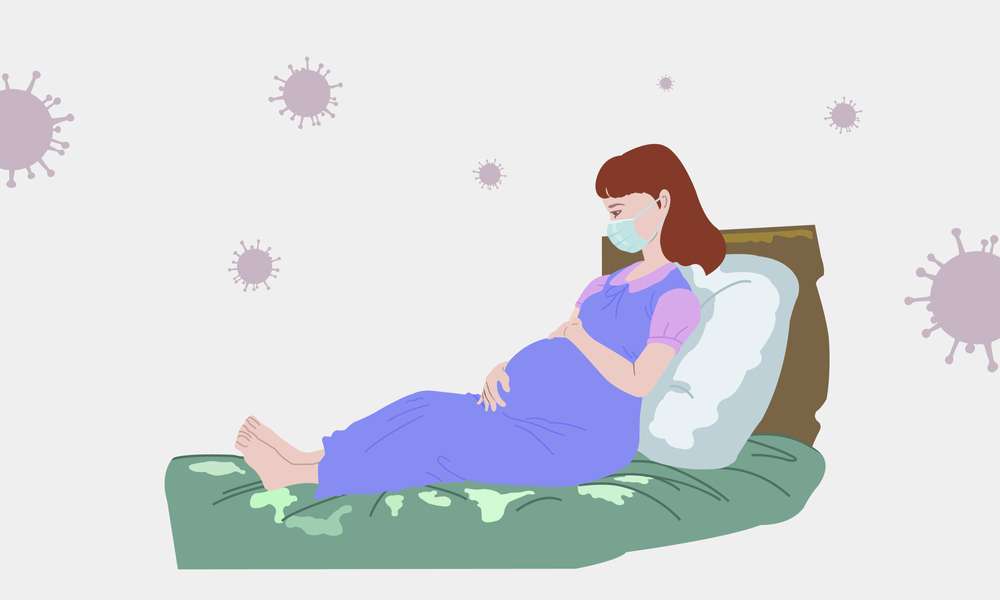Lightning Crotch pregnancy
Introduction
The remarkable journey of pregnancy is full with unusual experiences, but not all of them are enjoyable. A common source of discomfort for many expecting mothers is “lightning crotch pregnancy.” Although the phrase may sound dramatic, it actually refers to a sudden, acute, and frequently uncomfortable sensation in the pelvic region during pregnancy. In this piece, we’ll examine the reasons why people have lightning crotch, how to treat it, and when it’s critical to consult a doctor.
What is lightning crotch pregnancy?
lightning crotch which is also used to refer to “vaginal or pelvic lightning,” is used to refer to the stabbing, shooting, or piercing pain that pregnant women may experience in their pelvic region. This pain is typically felt in the later stages of pregnancy. Even while it may only last a few seconds or minutes, this sensation can be rather strong and painful.
Frequent lightning Crotch
The term “frequent lightning crotch” describes the frequent and frequent experience of lightning crotch pain. Some people may feel this discomfort more often as their pregnancy goes on because the pelvic area continues to change as the baby develops and moves. The word itself highlights how these sudden, sharp pelvic pains can recur during pregnancy.
It’s important to remember that everyone experiences lightning crotch differently, and that different people experience different levels of intensity and frequency. See a healthcare professional for additional assessment and direction if the pain gets severe, lasts longer than expected, or is accompanied by other worrisome symptoms. Depending on the particulars of the pregnancy, they can offer tailored guidance.

Symptoms of lightning crotch pregnancy
Severe pain:
A sudden, stabbing or shooting pain in the pelvic area is the primary sign of lightning crotch. This discomfort may come and go quickly, lasting only a few seconds, or it may linger for a minute or more.
Pain position:
The pain is usually felt in the lower pelvis and can also be felt in the vagina, cervix, or rectal region. Some women say it feels like an electric jolt in the groin or vaginal region.
Intermittent:
Lightning crotch pregnancy frequently isn’t a continual agony; rather, it comes and goes. These pains could come and go throughout the course of the day.
Movement related pain:
Pain May Be Increased or Caused by Movements Walking, standing up, changing positions, or even abrupt movements of the unborn child inside the womb may cause the pain to flare up.
Occurence in later pregnancy:
As the baby grows and exerts more pressure on the pelvic region, lightning crotch tends to happen more frequently in the later stages of pregnancy, typically in the third trimester.
Tenderness:
Even in the absence of a strong pain, some women may feel tender or uncomfortable in the pelvic area. This might be as a result of the local muscles and ligaments being stretched and under pressure.
lack of predictability:
Lightning crotch pregnancy frequently happens unexpectedly and without prior notice. It’s possible that you’re going about your daily business when the pain suddenly arises.
Note:
While having a lightning crotch pregnancy can be uncomfortable and even painful, it is crucial to remember that this condition is typically normal during pregnancy. It’s important to speak with your healthcare practitioner if you have any questions regarding the pain you’re feeling or if you experience any unexpected symptoms along with it (such as bleeding or a decrease in fetal activity). They can evaluate your health and offer advice on how to control your discomfort or rule out any underlying conditions to ensure a successful pregnancy.
Causes of lightning crotch Pregnancy
Baby Position:
The placement of the infant in the womb is one of the main reasons of lightning crotch. As the baby develops, their movements and placements may put strain on the ligaments and nerves in the pelvic area, causing pain.
Pressure on nerves:
A developing uterus may put pressure on the pelvic region’s nerves, resulting in piercing, shooting sensations. When the baby’s head engages in the pelvis during “lightening,” which occurs as it prepares to give birth, this pressure may be much worse.
Ligament pain:
As the uterus grows, the circular ligaments, which support the uterus, may stretch and become painful. The pelvic area may experience sudden pain as a result of this stretching.
Changes in hormones:
Pregnancy-related hormonal changes can have an impact on the ligaments and muscles, making them more prone to pain and discomfort.
Relief from lightning crotch pregnancy:
- Change positions:Changing your position can help relieve some of the pressure on the area affected by Lightning Crotch. Consider sitting upright, resting on your side, or using a pregnant support pillow.
- Light streches:Prenatal yoga instructors or your healthcare professional may offer gentle stretching activities to assist release tension in the pelvic region.
- Warm compress:Using a warm compress on the sore area will ease pain and help muscles relax.
- Pelvic excersises:Exercises for the pelvic can help strengthen the muscles in the pelvic area and may lessen the frequency and intensity of lightning crotch. Pelvic floor exercises are also known as Kegel exercises.
- Flexible outfit:Wearing belly bands or pregnancy belts that are supportive will help relieve some of the pressure on the pelvic area.

When does lightning crotch start in pregnancy?
A pregnancy-related sharp, shooting pain that some women experience is referred to as “lightning crotch pregnancy” in slang. Usually, the groin or vaginal portion of the pelvic area will experience this pain. It is frequently brief yet severe and can seem like a sudden, stabbing sensation. The beginning of lightning crotch pregnancy differs from person to person and can occur at various points during pregnancy.
Note:
- This discomfort may begin to bother some pregnant women as early as the first trimester, while it may take others until the second or third trimester to experience it . As the baby’s head moves further into the pelvis and causes strain on the nearby nerves and ligaments, it occurs more frequently in the later stages of pregnancy. Although the precise cause of lightning crotch pregnancy is unknown, it is believed to be related to the ligaments and nerves in the pelvic area being stretched and put under pressure as the uterus and baby develop.
- The location of the baby and hormonal fluctuations can both aggravate this discomfort. You must tell your healthcare practitioner about your lightning crotch pregnancy if you find it to be uncomfortable or painful during your prenatal checkups. They can confirm there are no underlying problems causing the pain and offer advice on how to manage the discomfort. Moreover, several straightforward actions, like shifting postures, utilizing a pregnancy support belt, or performing prenatal stretches and exercises, may assist in easing the discomfort brought on by lightning crotch pregnancy.
lightning crotch pregnancy a sign of labor?
Although “lightning crotch pregnancy” in and of itself is not a sure sign of labor, it can be linked to physical changes that take place as labor gets closer. This phrase describes the piercing, shooting pains that pregnant women suffer in the pelvis or vaginal region. It is brought on by a number of factors, including strain on ligaments and nerves as the baby moves further into the pelvis and the body gets ready to give birth.
Note:
The baby’s head usually engages or lowers more into the pelvis as labor approaches. This motion could intensify lightning crotch sensations and raise the pressure in the pelvic area. However, a single lightning crotch pregnancy does not necessarily mean that labor is about to start. There are additional symptoms and indicators that are more suggestive of labor beginning, including:
- Regular Contractions:The traditional indicator of labor is a series of progressively regular, frequent, and strong contractions. These contractions frequently have a pattern and are steadily more reliable over time.
- Cervical Changes:Your doctor might examine your cervix to look for modifications like effacement (thinning) and dilation (opening), which are typical signs of labor progressing.
- Mucus plug:Loss of the mucus plug, which seals the cervix during pregnancy, may signal the beginning of labor. This may take place in the days or weeks preceding childbirth.
- Membrane Rupture: If your water breaks, it’s obvious that labor has started or is going to start.
- Blood Shows:Having a “blood show,” or passing a little amount of blood-tinged mucus, may indicate that your cervix is altering in anticipation of labor.
- Backache and Pelvic Pressure” labor progresses and the baby’s position changes, many people report feeling more back pain and pelvic pressure.
- Note:It’s a good idea to call your doctor or go to the hospital if you experience lightning crotch pregnancy along with other symptoms like regular contractions, changes in cervical dilation and effacement, or any of the other signs listed above, as these could be signs that labor is beginning or progressing. However, if you simply have a lightning crotch pregnancy and no other labor symptoms, it’s probably just pregnancy-related pain.
When to seek medical advice?
While a lightning crotch pregnancy is typically a normal feature of pregnancy, there are several circumstances where it could be a sign of a more serious problem. You must speak with your healthcare provider if:
- The discomfort is intense and ongoing.
- You start bleeding internally.
- You observe that fetal movement has decreased.
- You’ve experienced premature birth or other pregnancy difficulties in the past.

lightning crotch every few minutes
If you get lightning crotch every few minutes while pregnant, that should worry you. Even though lightning crotch, or acute, shooting pain in the pelvic region, is common and generally not dangerous, experiencing it so frequently might be a reason to see a doctor. Here are some potential outcomes:
- Increased Uterine Activity: It may be worth confirming if you are experiencing contractions if you are experiencing a persistent stabbing or shooting pain. There are situations when pelvic pain can result from contractions.
- Round Ligament Pain: Although it’s a common source of sharp pain during pregnancy, round ligament pain usually only happens every few minutes. It is still possible, though.
- Infection or Inflammation: Pelvic infections or inflammations may give rise to pain. Painful conditions include pelvic inflammatory disease (PID) and urinary tract infections (UTIs).
- Other Complications: The pain that is occurring frequently may be the result of other complications, such as problems with the placenta or cervix.
It’s critical that you discuss your symptoms with your healthcare provider as soon as possible. To evaluate the situation, they might wish to perform an examination, track fetal activity, and maybe even run tests like an ultrasound or cervical exam.
It is always advisable to seek professional medical advice and exercise caution when experiencing unusual or worrisome symptoms during pregnancy. Your medical history and unique circumstances can help your healthcare provider provide advice.
Conclusion:
Though it can be an unsettling aspect of pregnancy, lightning crotch pregnancy is frequently a common and transient symptom. Expectant moms might control this discomfort by realizing its sources and putting alleviation measures into practice. To promote a healthy and secure pregnancy, however, always speak with your healthcare professional if you have any worries or suffer severe or persistent pain.


